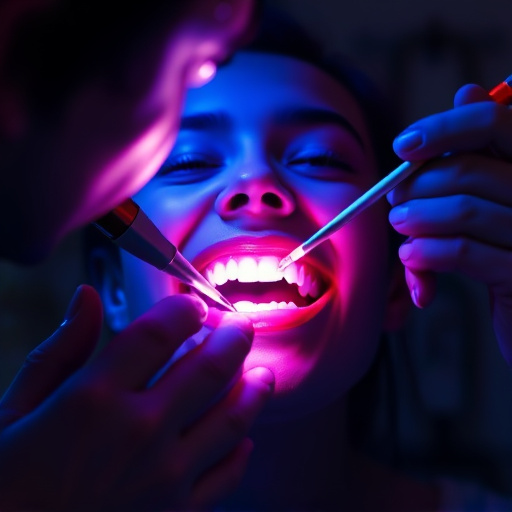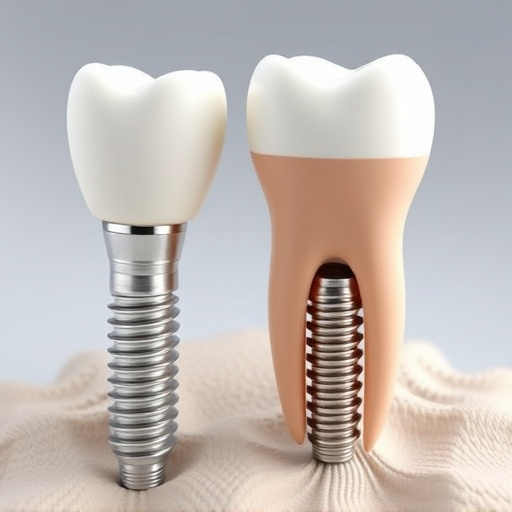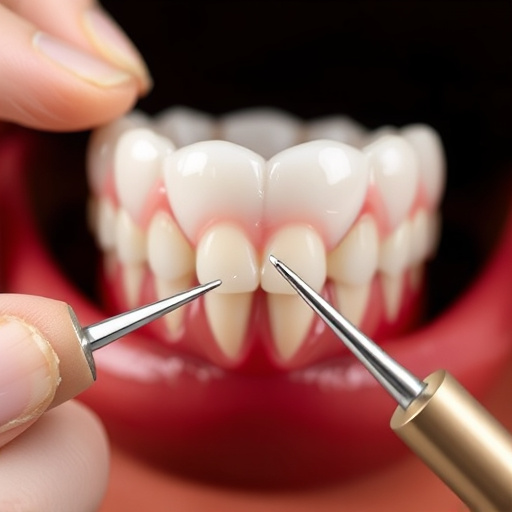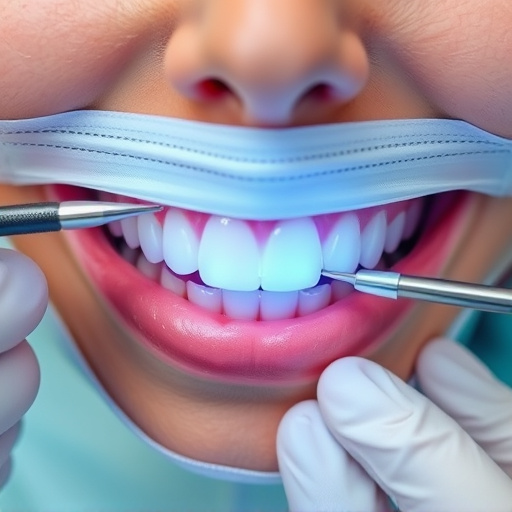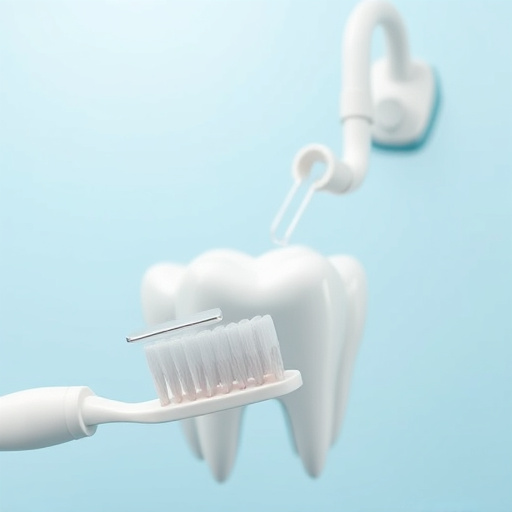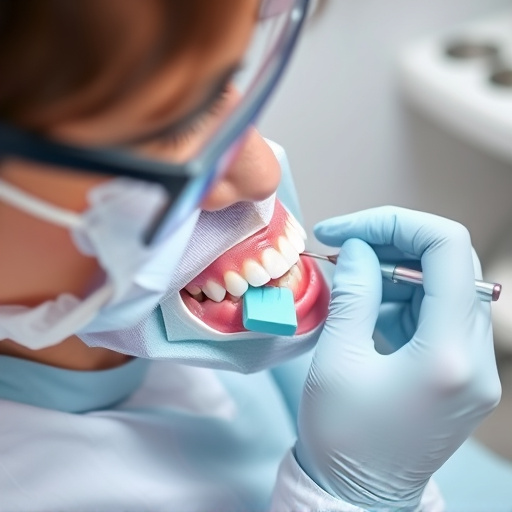Oral health assessments are key to understanding overall well-being, as they reveal connections between dental issues and systemic conditions like heart disease, diabetes, and respiratory problems. Regular check-ups, including screenings for oral cancer and x-rays, are crucial for early detection of issues like abscesses or wisdom tooth complications. Emergency dental care is vital for preserving both oral and overall health in severe cases. A comprehensive assessment involves visual inspection, specialized tools, X-rays, evaluation of hygiene habits, dietary choices, and underlying health conditions, empowering dentists to identify potential issues early through integrated care, preventive measures, and modern dental technologies.
Oral health assessment is an essential component in monitoring overall well-being. The connection between oral and systemic health is profound, with oral conditions impacting various systemic diseases and vice versa. This article explores how comprehensive oral health assessments can be integrated into routine healthcare practices. We delve into the key components that constitute a thorough oral evaluation, highlighting their role in identifying potential health risks early on. By understanding this link, healthcare providers can offer more holistic care.
- Understanding the Connection Between Oral and Overall Health
- Components of a Comprehensive Oral Health Assessment
- Integrating Oral Health Monitoring into Routine Healthcare Practices
Understanding the Connection Between Oral and Overall Health
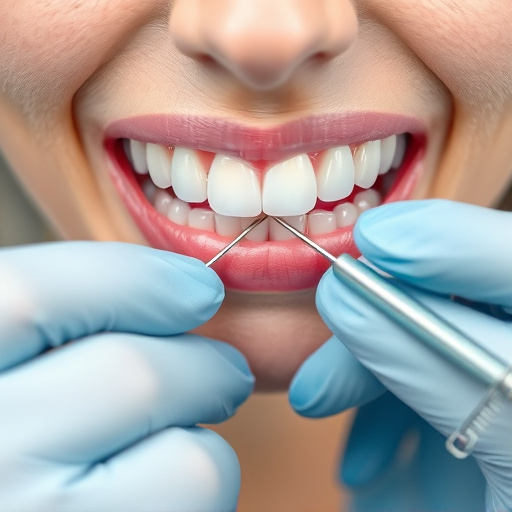
Oral health is often considered a reflection of our overall well-being, and an oral health assessment can provide valuable insights into our body’s state. The connection between oral and systemic health is a two-way street. Dental issues like tooth decay or gum disease have been linked to various systemic conditions, including heart disease, diabetes, and respiratory problems. Similarly, chronic illnesses can manifest in the mouth, such as dry mouth due to medication side effects or jaw pain from arthritis.
Regular oral health assessments, which may include screenings for oral cancer, x-rays, and dental examinations, play a crucial role in early detection of these issues. For instance, a simple check-up might uncover an abscess that requires immediate attention, such as a wisdom tooth removal to prevent further complications. Even procedures like dental implants can impact overall health, offering improved chewing function and enhancing the patient’s confidence, which has positive psychological effects. In case of emergencies, such as severe toothaches or facial traumas, prompt emergency dental care is essential for both oral and overall health preservation.
Components of a Comprehensive Oral Health Assessment
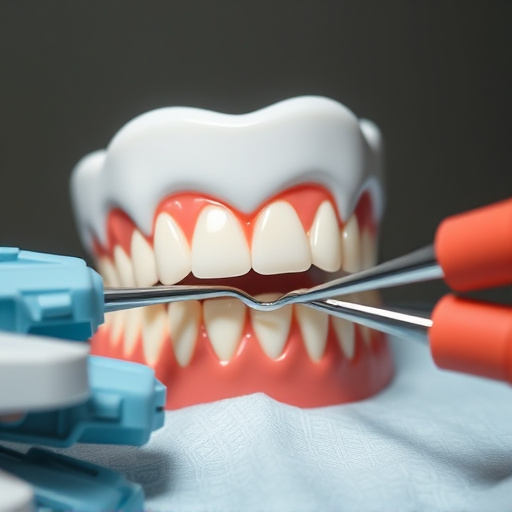
A comprehensive oral health assessment involves a detailed examination of your teeth, gums, and mouth, providing insights into your overall well-being. This process begins with a thorough visual inspection to identify any visible signs of decay, gum disease, or abnormalities. Dentists use specialized tools during routine oral exams to check for tooth decay, measuring the depth of gum pockets and assessing the condition of dental fillings, such as cosmetic fillings. X-rays are also an essential component, offering a clear view of tooth roots, jawbones, and hidden areas where issues might go unnoticed.
Moreover, the assessment includes evaluating your oral hygiene practices, discussing your diet, and considering any medications or systemic health conditions that may impact your mouth. By integrating these various components, family dentistry professionals can detect potential problems early on, allowing for timely interventions to maintain optimal oral health and prevent more severe issues from arising.
Integrating Oral Health Monitoring into Routine Healthcare Practices
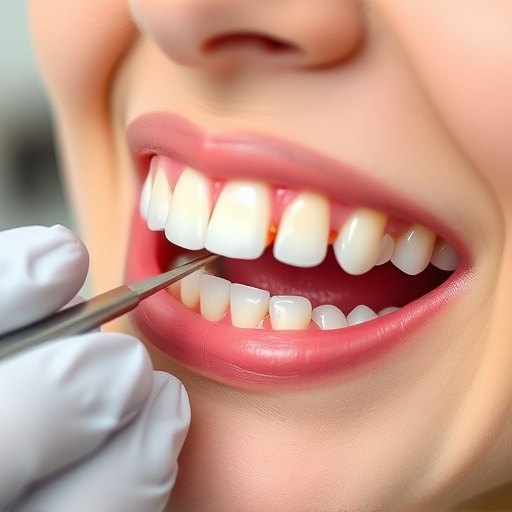
Integrating oral health monitoring into routine healthcare practices is a significant step towards holistic well-being. It recognizes that the mouth serves as a gateway to overall health, with various oral conditions mirroring systemic ailments. By incorporating oral health assessments into primary care settings, healthcare providers can identify early signs of diseases like diabetes or cardiovascular issues through simple visual exams and patient history reviews. This proactive approach allows for timely interventions and improved patient outcomes.
Moreover, leveraging modern dental technologies such as dental bonding, clear aligners, and comprehensive dental care enables precise tracking of oral health over time. These tools facilitate regular check-ups, making it easier to detect changes in dental structures or gum health, which can be indicators of underlying health problems. Such integrated care ensures that patients receive comprehensive wellness management, addressing both physical and oral health concerns simultaneously.
Oral health assessment is not just about checking teeth; it’s a vital tool for overall health monitoring. By integrating comprehensive oral health evaluations into routine healthcare practices, we can better understand and address systemic connections between oral and general well-being. This integrated approach ensures no aspect of an individual’s health is overlooked, promoting holistic care and improved quality of life.





